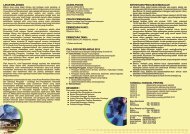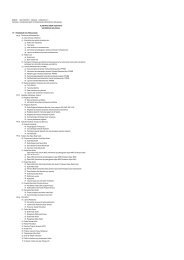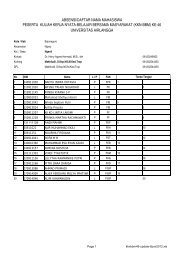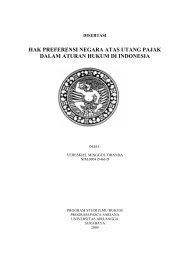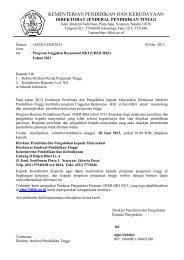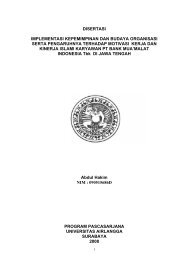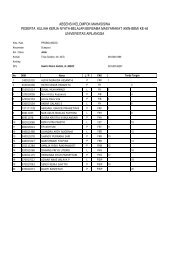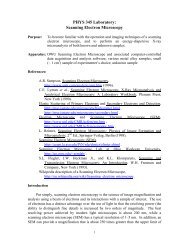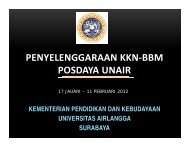Nietzsche's Naturalistic Ethics - UNAIR | E-Book Collection
Nietzsche's Naturalistic Ethics - UNAIR | E-Book Collection
Nietzsche's Naturalistic Ethics - UNAIR | E-Book Collection
Create successful ePaper yourself
Turn your PDF publications into a flip-book with our unique Google optimized e-Paper software.
of nobility to count one’s privileges and their exercise among one’s duties. 21 So Nietzsche thinks thecharacters he hopes will overcome morality as we know it are bound by duties. Whatever thosecharacters are, they are not simply amoral creatures. 22Yet one wonders in what sense those duties are binding, and thus, in what sense they areduties in the first place. On the Christian sittliche Weltordnung, duties rest on the relationshipbetween human beings and their divine creator. In Kantian ethics duties are based on what reasondemands. Nietzsche rejects such traditional accounts of duties, but insists that his preferredcharacters are persons of duty. Does Nietzsche commit the blunder he ascribes to Kant and theutilitarians, namely, to endorse bits of traditional morality without endorsing keystone elementsneeded for its justification? To respond Nietzsche must justify duties without making nonsense ofhis criticism of traditional morality. The naturalistic codes provide an obvious answer, and no otheranswer emerges from Nietzsche’s writings. Yet the narrow reading of the debtor-creditor relationswill not do. The duties Nietzsche envisages for the types he praises are presumably morecomprehensive than merely obligations to return what one has loaned, or to stick to one’s contracts.Thus the duties individuals have towards each other are to be understood in terms of the urge to21 Cf. also EH, Skirmishes, 38, and the 1886 preface to HAH. Consider, in this context,also Nietzsche’s insistence that he is the first decent person resisting the falseness and hypocrisyof centuries (EH, Destiny 1; see also TI, Skirmishes, 37). These considerations may also explainthe curious remark in TI, Maxims, 36: “Whether we immoralists are harming virtue? Just as littleas anarchists harm princes. Only since the latter are shot at do they again sit securely on theirthrones. Moral: morality must be shot at.” This seems to say that Nietzsche understands his owncriticism as a way of strengthening the Christian sittliche Weltordnung. However, this hardlymakes sense in the larger context of TI. Instead, what it might mean is that the proper kind ofmoral codes can be identified thorough critique, that is, moral codes that are not only consistentwith but restore Anstand, decency, just as attacks on princes make it possible for them to restore“true” power that they had begun to share in a constitutional manner.22For Nietzsche on the morality of the higher men, cf. also Schacht (1983), pp 463-69.21




